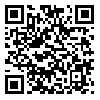Objectives : The behavioral-cognitive framework offers methods for stress assessment and its relevant coping strategies. The present study was designed to investigate stress management pattern of substance abusers. The results may be used for effective cognitive-behavioral interventions for these patients. Method: One hundred substance abusers who sought treatment at addiction rehabilitation department were recruited in this study. A selective control group matched for demographic variables with the first group were also requested to take part in the study. Revised Carver Coping Strategy Scale and semistructured interview were carried out for assessment. Results: the results showed that patients in studied group represented a significantly different patterns of stress management in contrast to the control group, Coping strategies of the patients were almost ineffective in dealing with stress (i.e. negative thoughts, wishful thinking, magical thinking, and emotionally focused e.g., denial, disengagement, etc.). Conclusion: substance abusers may have unhealthy coping mechanisms in dealing with stress. It seems that lack of effective strategies in dealing with stress strengthens the addictive behavior. The addiction in turn brings psycho-social problems for these patients .
Received: 2013/01/22 | Published: 2000/12/15
| Rights and permissions | |
 |
This work is licensed under a Creative Commons Attribution-NonCommercial 4.0 International License. |


